On This Page: [hide]
As we delve into what makes Namecheap a go-to choice for many, we’ll examine its performance, reliability, and the unique blend of services that cater to both newcomers and seasoned webmasters.
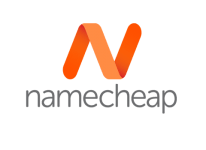 Visit Site
Visit Site 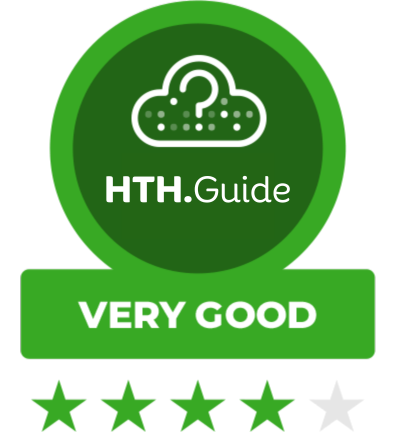
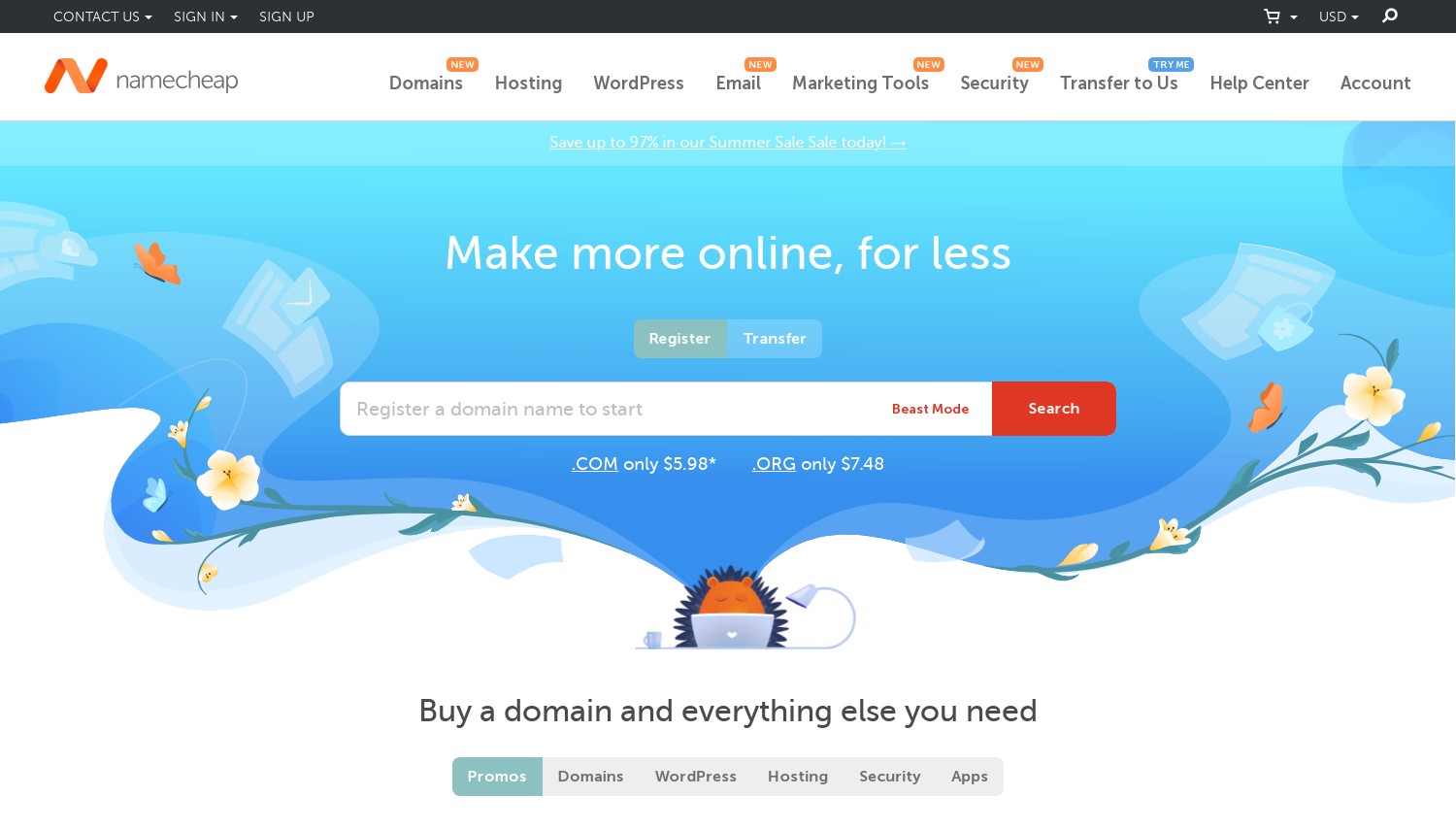
| Name | Namecheap |
| Total Reviews | 18103 |
| Average Score | 4.2 |
| Website | http://www.namecheap.com |
| Address | 11400 W Olympic Blvd Los Angeles , CA 90064 US |
| Server Locations | |
Number of Reviews
Avg. Review Score
Customer Support
What Makes Namecheap Stand Out in 2025?
In the evolving digital era, finding a service that blends affordability with functionality is key for businesses and individuals alike. Namecheap emerges as a distinguished provider in this respect, offering a comprehensive suite of web services that not only cater to domain registration needs but also extend to hosting, security, and more.
Its commitment to delivering value without hidden costs, combined with a user-friendly platform, sets it apart in a competitive market. Moreover, Namecheap’s steadfast focus on customer satisfaction, underscored by a plethora of positive reviews, reinforces its stature as a reliable and trusted brand in 2025.
From Startup to Scale: Does Namecheap Support Growth?
As businesses evolve, so do their digital needs. Namecheap distinguishes itself by offering a spectrum of services designed to support growth at every stage.
The scalability of its hosting solutions is a prime example, enabling users to upgrade as their website expands. Furthermore, Namecheap’s additional offerings, such as WordPress management and security services, cater to the maturing requirements of growing enterprises. With tools like an advanced web application firewall (WAF) and daily backups ensuring operational security, businesses can focus on growth without worrying about the underlying technical complexities.
This comprehensive support framework, coupled with Namecheap’s robust infrastructure, positions it as a partner capable of supporting ventures from inception to scale and beyond.
- Namecheap reviews from United States
| Average score | 4.16 |
| Number of reviews | 4230 reviews |
- Namecheap reviews from United Kingdom
| Average score | 3.70 |
| Number of reviews | 1166 reviews |
- Namecheap reviews from Nigeria
| Average score | 4.54 |
| Number of reviews | 1160 reviews |
- Namecheap reviews from Pakistan
| Average score | 4.33 |
| Number of reviews | 1062 reviews |
- Namecheap reviews from Bangladesh
| Average score | 4.51 |
| Number of reviews | 1050 reviews |
- Namecheap reviews from India
| Average score | 4.39 |
| Number of reviews | 1019 reviews |
- Namecheap reviews from Canada
| Average score | 4.18 |
| Number of reviews | 615 reviews |
- Namecheap reviews from Morocco
| Average score | 4.39 |
| Number of reviews | 571 reviews |
- Namecheap reviews from Australia
| Average score | 3.97 |
| Number of reviews | 382 reviews |
- Namecheap reviews from Germany
| Average score | 3.50 |
| Number of reviews | 300 reviews |
- Namecheap reviews from Philippines
| Average score | 4.61 |
| Number of reviews | 279 reviews |
- Namecheap reviews from Egypt
| Average score | 4.35 |
| Number of reviews | 264 reviews |
- Namecheap reviews from Mexico
| Average score | 4.52 |
| Number of reviews | 262 reviews |
- Namecheap reviews from Kenya
| Average score | 4.59 |
| Number of reviews | 226 reviews |
- Namecheap reviews from Spain
| Average score | 3.83 |
| Number of reviews | 224 reviews |
- Namecheap reviews from United Arab Emirates
| Average score | 4.30 |
| Number of reviews | 219 reviews |
- Namecheap reviews from Colombia
| Average score | 4.52 |
| Number of reviews | 217 reviews |
- Namecheap reviews from Sri Lanka
| Average score | 4.70 |
| Number of reviews | 204 reviews |
- Namecheap reviews from Vietnam
| Average score | 4.30 |
| Number of reviews | 203 reviews |
- Namecheap reviews from Indonesia
| Average score | 4.57 |
| Number of reviews | 187 reviews |
- Namecheap reviews from France
| Average score | 3.54 |
| Number of reviews | 180 reviews |
- Namecheap reviews from Peru
| Average score | 4.38 |
| Number of reviews | 173 reviews |
- Namecheap reviews from Ghana
| Average score | 4.56 |
| Number of reviews | 164 reviews |
- Namecheap reviews from Turkey
| Average score | 4.08 |
| Number of reviews | 158 reviews |
- Namecheap reviews from Singapore
| Average score | 4.17 |
| Number of reviews | 155 reviews |
- Namecheap reviews from Malaysia
| Average score | 4.59 |
| Number of reviews | 153 reviews |
- Namecheap reviews from Italy
| Average score | 3.84 |
| Number of reviews | 150 reviews |
- Namecheap reviews from Russia
| Average score | 2.81 |
| Number of reviews | 149 reviews |
- Namecheap reviews from South Africa
| Average score | 4.31 |
| Number of reviews | 146 reviews |
- Namecheap reviews from Netherlands
| Average score | 3.74 |
| Number of reviews | 141 reviews |
Why Choose Namecheap? Analysing the Pros and Cons
Within the competitive backdrop of web hosting services, Namecheap emerges as a noteworthy option for individuals and businesses aiming for cost-effective, dependable hosting solutions. This section delves into the strengths and limitations of opting for Namecheap, assisting you in making an informed decision aligned with your web presence needs.
The Advantages of Hosting with Namecheap
Namecheap, as the name suggests, is celebrated for its affordability, especially in a market where costs can quickly escalate. Let’s unpack the benefits of choosing Namecheap for your hosting needs:
- Exceptional Affordability: Namecheap stands out with its competitive pricing strategy, offering budget-friendly shared hosting plans that are hard to match. For new users, the initial year comes with significant discounts, making it an attractive option for those starting out.
- Generous Uptime Guarantee: With a 100% uptime guarantee, Namecheap commits to reliable service availability. This is a cornerstone for anyone’s online success, ensuring websites remain accessible to visitors consistently.
Performance Metrics: Speed, Uptime, and Reliability of Namecheap
Speed, uptime, and reliability are the pillars supporting a solid online presence. Whether you’re managing a personal blog or a bustling online store, the performance of your web hosting service can significantly impact your site’s accessibility and user experience.

This is where Namecheap’s offerings in web hosting come into the limelight, aiming to deliver a balance between speed, consistent uptime, and reliable access.
Is Namecheap Fast Enough for Your Needs?
Speed is often the first metric we turn to when evaluating a web host’s performance. A fast-loading website improves user experience, enhances SEO rankings, and supports traffic growth without hiccups. Namecheap has been put through rigorous tests to measure its performance against industry benchmarks, and here’s what we found:
- Average Response Time: Over the years, Namecheap has shown improvement in server response times, hitting an average of 328ms in 2022. This falls within the acceptable industry benchmark of 300-400ms, indicating competitive performance in the web hosting market.
Is Namecheap Reliable?
Reliability in web hosting is measured by uptime. It represents the percentage of time your website is available and accessible to users. Namecheap has demonstrated exceptional reliability with an impressive record:
- 100% Uptime: Namecheap scored a perfect uptime rate over the last two years, a feat achieved by very few hosts. This indicates that sites hosted by Namecheap are available to visitors without significant downtime.
- Uptime Guarantees: Depending on your plan, Namecheap offers uptime guarantees of 99.90% to 99.99%, ensuring minimal downtime. They also promise compensation for any downtime beyond these guarantees, offering refunds proportional to the length of service disruption.
- Consistency Across Years: Consistency in uptime over multiple years puts Namecheap in a league with some of the industry’s more premium services, offering reliability at a fraction of their cost.
It’s beneficial to consider how these metrics align with your website’s size, traffic, and performance requirements.
Deep Dive into Namecheap Security Features
Understanding the security measures in place for any web hosting service, including Namecheap, is crucial for maintaining a safe online presence. Namecheap addresses the fundamental concerns of website security through a variety of features aimed at safeguarding users’ data and privacy. This segment explores the specific security tools Namecheap provides its customers and how those tools function to protect against common cyber threats.
How Namecheap Keeps Your Website Safe
At its core, Namecheap incorporates several security features designed to shield websites from potential threats. Each account benefits from:
- SSL Certificates: These certificates validate your website’s identity and enable an encrypted connection. Namecheap facilitates one-click installation for SSL certificates, emphasizing ease of use alongside security.
- Domain Privacy: With WHOIS privacy protection coming as standard with most domain registrations, Namecheap ensures that your personal information is not publicly displayed, reducing spam and protecting against identity theft.
- Domain Lock: Prevent unauthorized domain transfers by locking your domain, a feature that comes free with every purchase, adding an extra layer of security against domain hijacking.
- DDoS Protection: To combat DDoS attacks, Namecheap employs protective measures that identify and filter excessive traffic, designed to prevent malicious attempts to disrupt website functionality.
- TOTP Two-Factor Authentication (2FA): This adds an additional step to the login process, considerably enhancing account security by requiring a temporary code generated on your device.
While these features present a substantial defense mechanism, it’s important to recognize areas where additional security might be necessary, particularly for businesses or individuals with higher risk profiles.
Unlocking Value: How Affordable is Namecheap?
The notion of affordability transcends mere low prices with Namecheap, as it encapsulates long-term value for its users. Starting with domains and extending to hosting services, Namecheap positions itself as a cost-effective choice for those initiating their digital journey or businesses watching their bottom line.
Without sacrificing quality, it presents an array of plans tailored for various needs, from straightforward shared hosting to more complex VPS and dedicated server options. The company’s transparent pricing model ensures users know what they’re paying for upfront, avoiding the common industry pitfall of unexpected costs down the line.
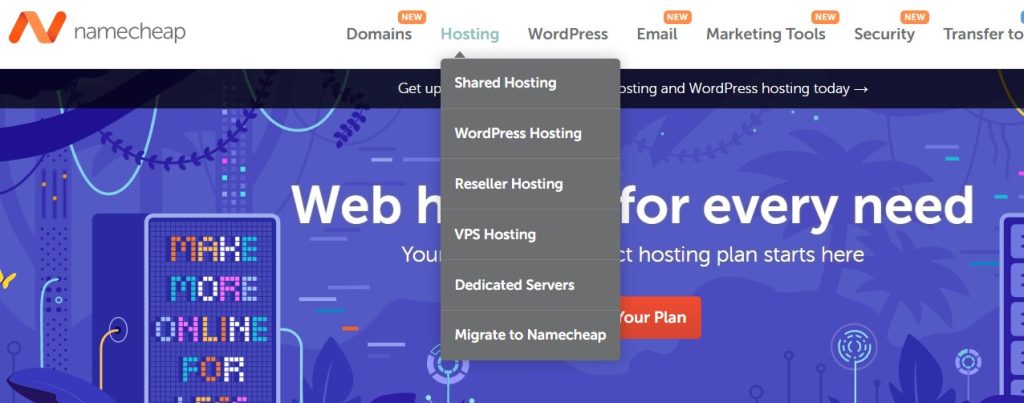
- Bandwidth Unlimited
- Panel cPanel
- Number of Sites 3
- Bandwidth Unlimited
- Panel cPanel
- Number of Sites Unlimited
- Bandwidth Unlimited
- Panel cPanel
- Number of Sites Unlimited
- CPU 2 cores
- RAM 2 GB
- CPU 4 cores
- RAM 6 GB
- CPU 4 x 3.4GHz
- RAM 8 GB
Renewal Prices and Hidden Costs: What You Need to Know
One often overlooked aspect when signing up for a hosting service is the long-term cost, including the price of renewal and any hidden fees that could arise. With Namecheap, users are enticed by low introductory prices, which is common in the hosting industry. However, understanding what comes next is essential for making an informed decision.
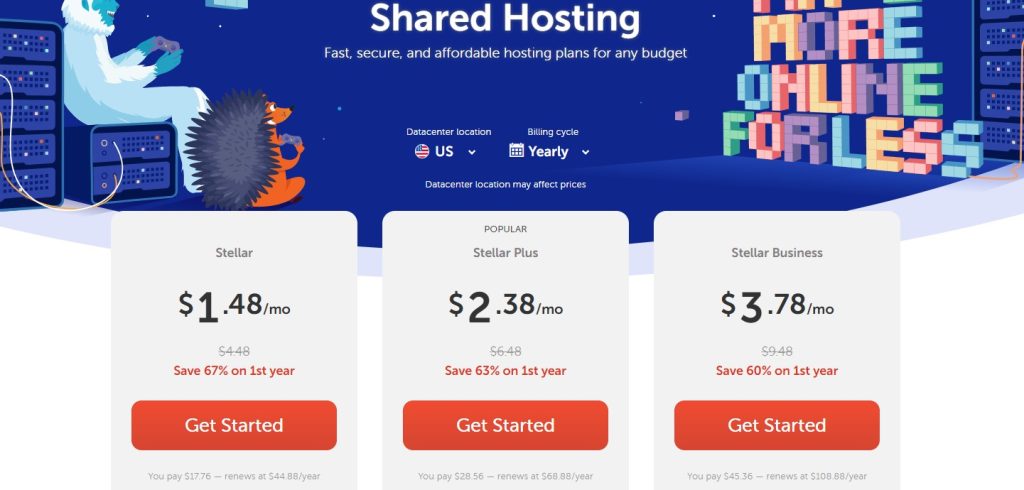
Firstly, the advertised price is often valid for the first year only. This is a standard practice, but it can catch buyers off guard. Namecheap does a commendable job at displaying the renewal price on their website, though it’s typically in smaller text beneath the introductory offer.
They ensure transparency by clearly indicating the difference between the introductory and renewal rates, yet the increase can still be significant for unwary customers.
Moreover, while some services come included for the first year, such as SSL certificates, users should be prepared for additional costs in subsequent years.
The free inclusion for the first year is a common perk across many hosting services, but it’s the responsibility of the user to note when these free services will convert to paid ones. SSL certificates, essential for secure and trusted websites, will hence become an ongoing cost.
An understanding of the exact features included in your selected package is also critical. Namecheap’s most basic hosting options are quite affordable but come with limitations in storage, website performance, and access to tools that might be necessary for website growth, such as WordPress optimization features or additional security measures.
For those who anticipate needing more robust features or higher performance, the costs can quickly add up as these additional services are not always prominently noted at the time of initial purchase.
Lastly, while Namecheap offers competitive pricing, it’s important to consider long-term value. Low costs are appealing, but evaluating what you’re getting for the price is crucial. If your website outgrows the basic services, upgrading your plan or adding services can narrow the price gap between Namecheap and other providers that might offer more comprehensive features at a slightly higher upfront cost.
In summary, while Namecheap presents an attractive option for those starting out or operating small personal sites, users should be mindful of renewal rates, potential additional costs for essential services after the initial year, and the limitations of cheaper plans. Ensuring you’ve thoroughly reviewed what’s included and what will necessitate additional payment in the future is pivotal to a satisfying hosting experience.
Navigating Namecheaps efficiency.
Namecheap Vs. Competitors: A Hosting Shootout
When considering web hosting services in 2025, its about aligning your specific needs, whether they’re for a personal blog, a burgeoning e-commerce site, or a large corporate presence, with the services and capabilities of the provider. To make an informed choice, consider the following factors:
- Performance and Reliability: Look for uptime guarantees and loading speed testimonials to ensure your website remains accessible and performs well.
- Cost-effectiveness: Analyze the total cost of ownership, including initial fees, renewal rates, and the cost of additional services and features you may need.
- Scalability: Your hosting should grow with your site. Ensure the provider offers higher-tier plans you can upgrade to as your demands increase.
- Customer Support: Reliable, round-the-clock support is crucial for addressing any technical issues swiftly.
Ultimately, the perfect match comes down to the service that best aligns with your websites advisable to conduct thorough research, leveraging reviews and user feedback, to make a well-rounded decision.
Getting Support from Namecheap: What to Expect
When you choose Namecheap for your hosting needs, you step into a world where customer support is prioritized. Understanding the type of support available can greatly enhance your experience, especially when timely help is needed.
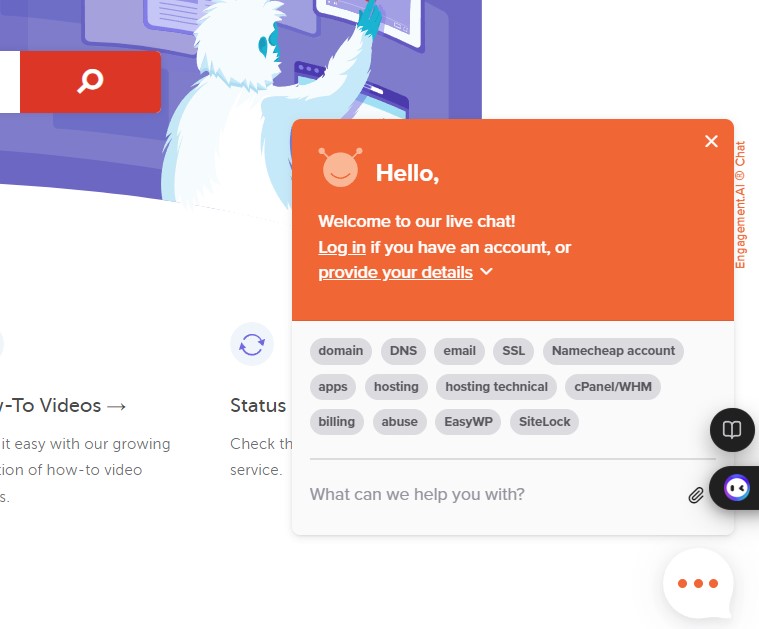
Expect comprehensive assistance through various channels, tailored to ensure your queries are addressed efficiently and effectively.
Navigating Namecheap’s Customer Support Channels
Namecheap’s support framework is designed to be accessible and responsive. Customers can reach out through live chat, ticketing systems, and an extensive knowledge base. Here’s a closer look at each channel:
- Live Chat: Available 24/7, Namecheap’s live chat support is often praised for its quick response times and effective problem resolution.
- Ticket System: For more complex issues, the ticketing system allows detailed queries to be submitted and tracked until resolved, ensuring thorough and documented support.
- Knowledge Base: The extensive library of articles and guides provides self-help resources, making it easier for users to find solutions to common problems independently.
Choosing Namecheap in 2025
Can You Trust Namecheap with Your Website?
Choosing a web host is a significant decision for any website owner. With Namecheap, you’re considering a company that has been operational since 2000, focusing not only on domain registrations but also on providing hosting services.
They have built a strong reputation for their domain services, and their hosting solutions come with a promise of affordability and user-friendliness.
Namecheap’s commitment to security is evident through their implementation of several measures designed to protect users, including advanced hosting security features and free WHOIS privacy protection for most domain registrations. These actions aim to shield users’ information from public access and potential online threats.
However, while Namecheap is deemed a trustworthy choice for domain services, its web hosting performance has shown limitations, especially concerning uptime statistics, which are crucial for any online project. Their 99.91% uptime might not satisfy users requiring high availability for their websites.
Despite this, Namecheap’s customer service is highly rated, with a 24/7 live chat option praised for its efficiency. Considering these factors, Namecheap can be a reliable option for those with smaller websites or beginners in the web space, but it may not meet the needs of websites with high traffic or those requiring utmost performance and uptime.
Is Namecheap the Best Budget Hosting Option for 2024?
Namecheap positions itself as an attractive option for those looking for budget-friendly web hosting without sacrificing necessary functionalities. Its allure includes competitive pricing, tempting domain name deals, and a user-friendly interface. For individuals starting a personal blog or small-scale website, Namecheap provides an enticing balance between cost and features.
The service includes shared hosting plans that are easy on the wallet, advanced security options, and a straightforward setup process. These elements make it particularly appealing to beginners or solo bloggers who prioritize affordability and simplicity.
However, it’s important to note the limitations that come with the lower price point. Namecheap’s hosting plans, particularly at the entry level, offer fewer resources compared to other providers. Furthermore, the reported uptime performance may not support websites with high traffic or those requiring consistent online presence.
The choice of server locations is also more limited, which could influence site speed and accessibility for global audiences. In considering Namecheap as a hosting provider for 2024, potential users should weigh these trade-offs. While it stands out for its cost-effectiveness and simplicity, certain aspects like performance and scalability might not suit all projects, especially those with more demanding needs.
In conclusion, while Namecheap is an excellent place to start for newcomers and small site owners due to its affordability and useful features, it’s wise to assess your specific needs against what Namecheap can offer. For those with greater demands in performance, reliability, and support for high traffic, exploring additional hosting solutions that might better align with these requirements is recommended.
Conversely, for projects where budget constraints are a key consideration, and the site’s demands align with Namecheap’s strengths, this provider represents a solid choice entering 2024.

The Final Verdict: Is Namecheap Hosting Right for You in 2025?
Deciding on a web hosting provider is a significant step for anyone looking to establish an online presence. Namecheap, widely recognized for its domain registration services, extends its offerings to web hosting with a value proposition that emphasizes affordability, ease of use, and a beginner-friendly platform.
However, determining if Namecheap is the right choice for your web hosting needs in 2025 requires a closer look at what it offers and, perhaps more importantly, what it lacks.
First off, Namecheap’s appeal to budget-conscious individuals, particularly beginners and those looking to host small websites or personal blogs, cannot be overstated. With competitive pricing across its shared hosting plans and a range of freebies like domain registration, privacy protection, and site migrations, it’s an attractive option for getting started without a hefty investment.
The company also promotes a user-first approach, offering extensive knowledge base articles to help resolve common issues, which underscores its commitment to customer support.
On the downside, Namecheap’s hosting services show limitations that might not make it the best fit for everyone. For websites with higher traffic volumes or for businesses that demand robust performance and reliability, Namecheap’s below-average uptime and performance measures could be a dealbreaker.
The lack of global data centers further restricts its ability to provide fast loading times to a worldwide audience, a crucial factor for the success of any online venture. Additionally, while Namecheap excels in domain services, its hosting plans, particularly at entry levels, offer limited resources and storage, which could hamper scalability and growth.
In conclusion, Namecheap’s hosting services in 2025 present a mixed bag. While they deliver in terms of affordability and beginner-friendliness, their performance metrics and limited scalability options suggest that they might not be suited for every type of user. If you’re starting a small personal project or a website with minimal performance demands, Namecheap could be an excellent choice.
However, for those with greater needs in terms of website traffic and performance, exploring other options might be warranted. Always assess your specific needs and priorities before making a decision, and consider the long-term implications of your hosting choice on your online ambitions.
